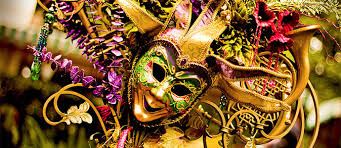By Andrea Fernandes
Contributing Writer
It’s almost the time of year when New Orleans prepares for all the festivities surrounding Mardi Gras. This includes the popular carnival dancing, bead making, mask wearing and, of course, feasting.
J.W. Cook, a freshman political science major, and David Bryant, a freshman journalism and mass communication major, shared their excitement for the celebration. The two spoke of ideas for a Mardi Gras celebration here on campus in the upcoming year.
“Mardi Gras is just so much fun,” Bryant said. “We really should recognize and celebrate the traditions.”
Cook explained how much he loves the celebration.
“Mardi Gras is awesome,” Cook said. “I like the traditions and festivities that come before Ash Wednesday.”
As president and vice president of their class, respectively, Cook and Bryant added that they would like to see a big celebration on campus to commemorate Mardi Gras. While speaking of their big plans, they said that the celebration could be held in the Skeller, with hopes that various groups on campus would contribute their talents to the event.
Cook and Bryant plan to use their positions to ensure that Bonaventure hosts its own Mardi Gras celebration. With both of their excitement and fascination, students shouldn’t be surprised if they see a Bonaventure version of Mardi Gras when the holiday comes around again next year.
Big celebrations for Mardi Gras are seen in New Orleans every year. On the Mardi Gras New Orleans website, a countdown has been added to show the number of days, hours, minutes and seconds left until the big day of celebration beginning Tuesday, March 4.
However, Mardi Gras is more than just a time of festivities. According to a story published by A&E Network, the history of Mardi Gras dates back to medieval times when the celebration was simply known as Carnival. Carnival preceded Lent, a period of prayer and sacrifice that occurs in preparation for the Easter season.
During Lent, Catholic adults do not eat meat on Fridays or Ash Wednesday. Animal meat was banned by the church, so it became tradition to eat the animal meat in their homes prior to the first day of Lent. The French called this event Mardi Gras, which translates to fat Tuesday.
Quite a number of students on campus did not know much about this holiday, mostly because in the United States, it is mainly popular in New Orleans. Those who were familiar with its history were ecstatic because the time for this celebration is near.
Nikhitha Garapati, a freshman psychology major, admits to having learned quite a bit about the celebration through her high school French classes. Garapati spoke of how much she wished she lived in New Orleans and how she plans to at least visit one year for the celebration.
Catherine Brown, a freshman journalism and mass communication major, was excited to be reminded of this holiday soon approaching.
“I love Mardi Gras.” Brown said. “Not just because of the parties and overload of food, but the historical background that comes with it. Mardi Gras is a time to relax and have fun, things many of us have forgotten over the years.”
Students interested in Mardi Gras will hopefully be able to look forward to future celebrations at Bona’s.







